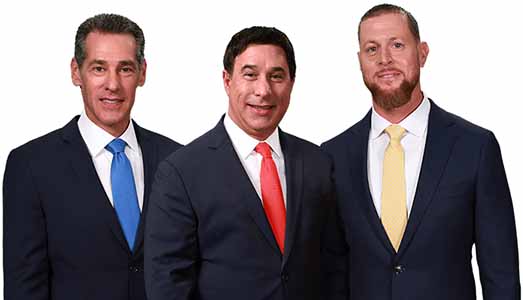After you have been in an auto accident, you are understandably shaken. You wonder what to do next. You have seen commercials on television where lawyers promise hundreds of thousands of dollars. You begin to wonder if that could happen for you. Chances are that, no, you will not be one of the very few people who win huge settlements — and that’s often a good thing. Here are five myths about auto accident injury lawsuits and the true facts.

1. Auto Injury Laws Are the Same Throughout the Country
This is simply not the case. Some states have no-fault laws and some states have at-fault laws. Some states require that a driver has liability insurance and others don’t. The way your lawsuit plays out will depend heavily on where you live. Don’t rely on someone’s experience or advice, especially when they don’t live in the same state.
In states that have adopted at-fault legislation, a judge will take into account who was at fault in the accident and to what degree. They will then determine who will pay and how much will be given. In states that are no-fault states, a car accident victim is entitled to certain damages regardless of fault. There are many factors that will determine how you are treated during your injury lawsuit and what you can reasonably expect.
2. Pain Means You Get Pain and Suffering Damages
Typically, the mere act of experiencing pain is not enough for you to be awarded pain and suffering. These are considered non-economic damages and most states have strict requirements before they are awarded. In order to qualify for “pain and suffering” in some states, for instance, there must have been either a death, permanent disfigurement or serious impairment of a bodily function.
Permanent disfigurement is the loss of a body part or injury that affects a person’s outward appearance. A serious impairment of a bodily function is one that does not allow the victim to continue to lead a normal life. Despite these general definitions, a judge still has the discretion to determine if pain and suffering will be awarded.
3. Million Dollar Settlements Are Common
The truth of the matter is that these settlements are fairly uncommon. They make news, which makes it seem like they are easily obtained. Yet, these kinds of settlements are generally only awarded when a victim dies or suffers catastrophic injury — not a great situation. It’s important to understand that every auto accident case is different and your settlement may be more or less than what you expect. This is why it’s recommended that people who have been injured in a vehicle collision reach out to an attorney who can give them proper advice.
4. Your Insurance Company Will Give You More If You Wait
Playing the waiting game with an insurance company is risky. In many cases, people believe that if they just wait a bit longer, the insurance company will offer a fair settlement. This is rarely the case. What you are doing, in all actuality, is hurting your own ability to file a personal injury lawsuit. The longer you wait, the closer you are to the end of your statute of limitations. Time is of the essence in a personal injury lawsuit and playing a useless waiting game with an insurance company can wreck your case.
5. Any Personal Injury Lawyer Will Do
No. It really is that simple. You wouldn’t hire a criminal defense attorney who specialized in theft to represent you in a DUI trial. On that same token, you shouldn’t choose a personal injury attorney who doesn’t specialize in auto accident cases. There are many types of cases under the umbrella of personal injury, and you need an attorney experienced in handling auto crashes.
You may not know this, but in some states, personal injury lawyers do not need to hold any special qualifications or licensure. They may not be trained in the nuances of personal injury law. They simply hang out a shingle calling themselves personal injury attorneys without any experience representing victims or specialized training. This is why it’s incredibly important to do your research before hiring an attorney.
After you are involved in a car accident, you need sound legal advice. Most attorneys will speak to you for free initially. During this meeting, you can ask questions, decide if you have the potential for a successful case and more. It’s always a good idea to at least speak with a reputable attorney before deciding your next move.
If you’ve been injured in an auto accident in Miami, Orlando car accident lawyer, we are here for you. Reach out to our attorneys today for a free case evaluation. We will review the details of your accident and advise you of your legal rights. Call our office now or browse our website for more information about our firm. We are happy to answer any questions you may have in order to provide you with best legal advice.
